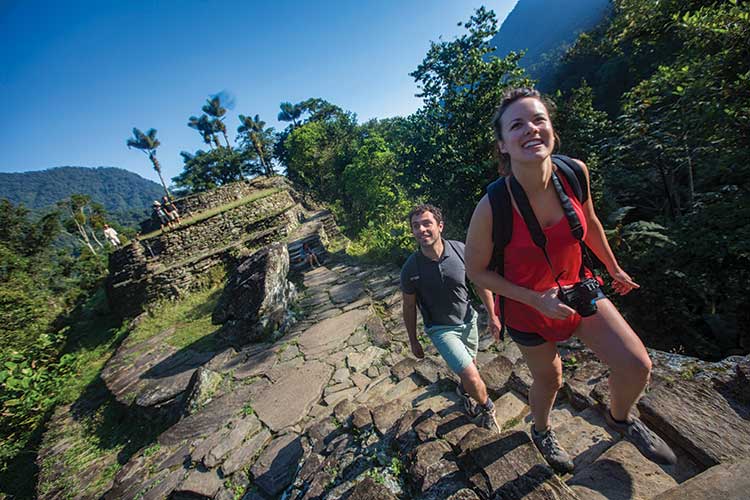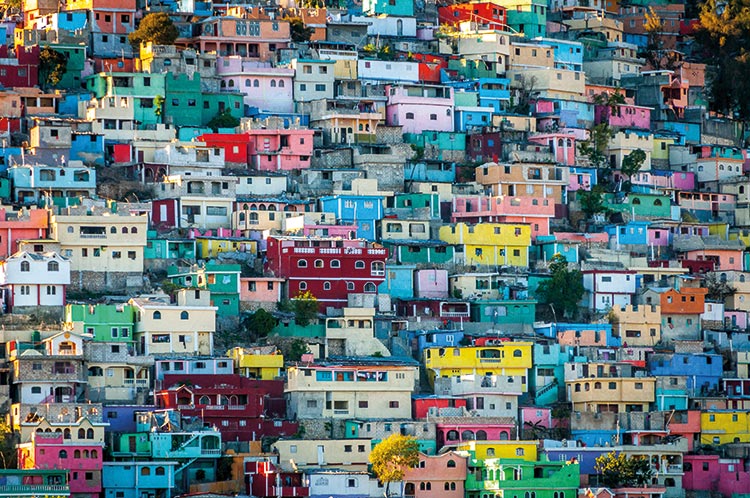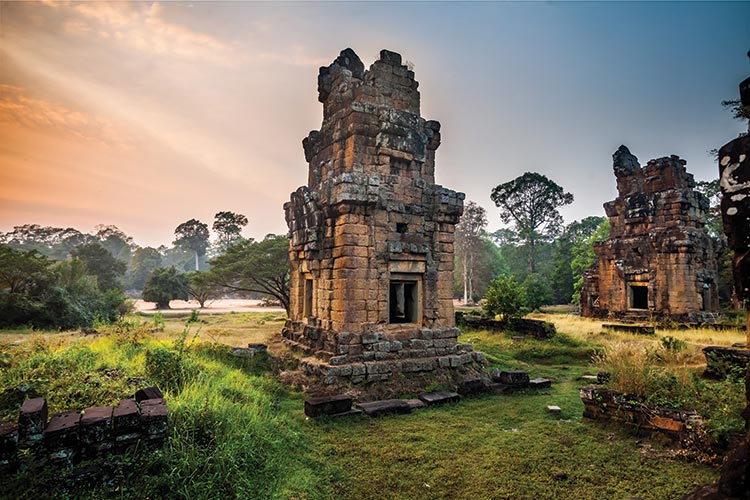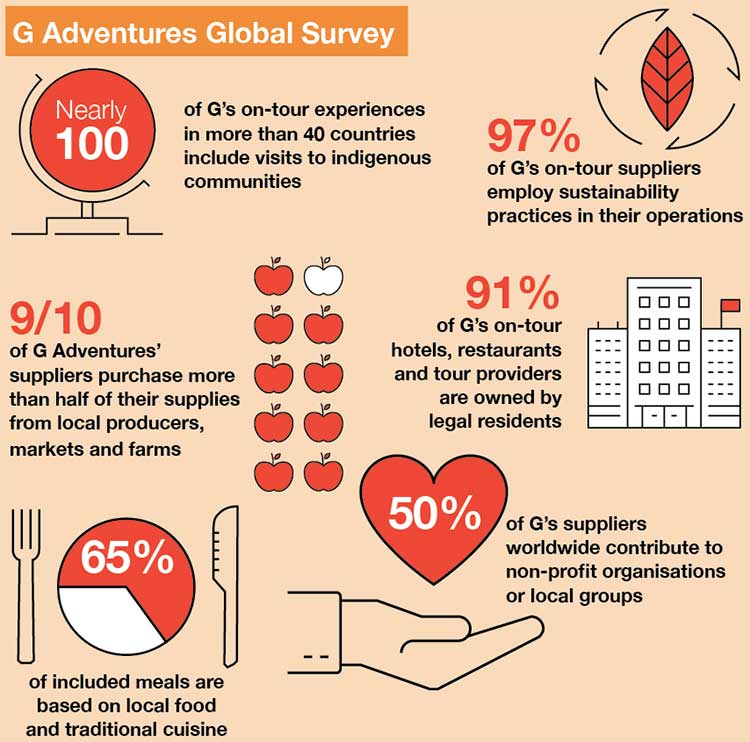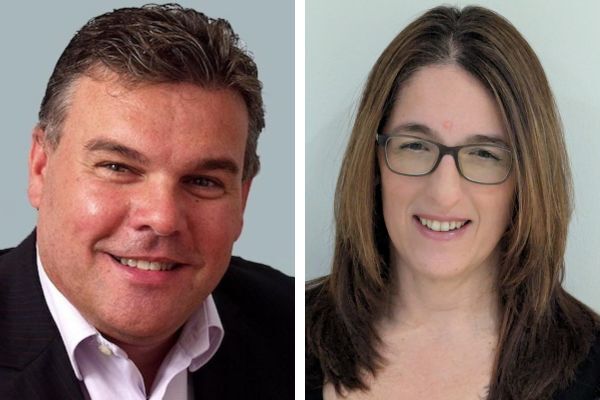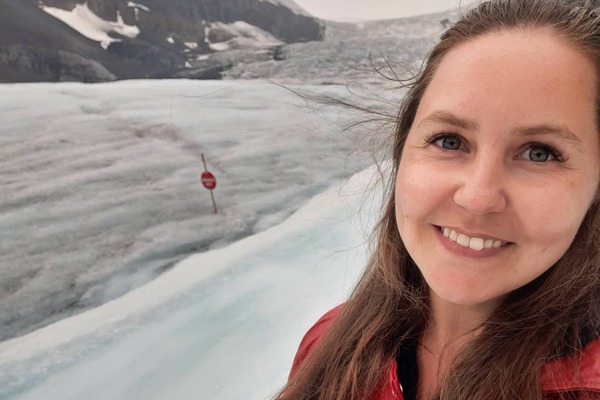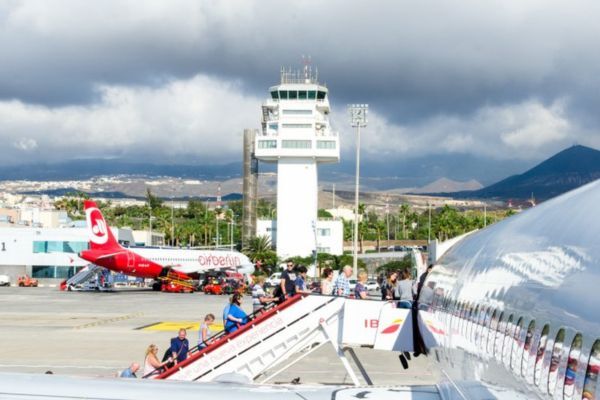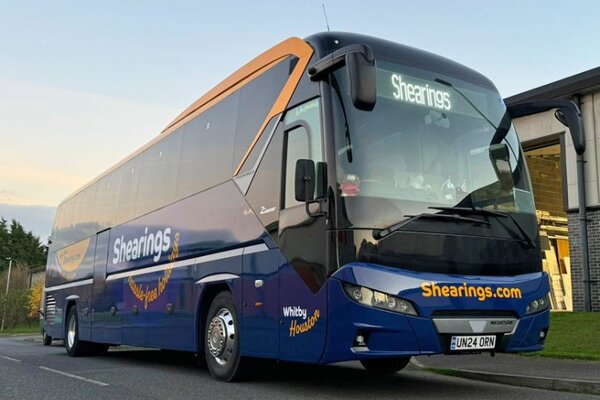G Adventures: Setting responsible travel standards
G Adventures has helped push sustainable tourism to the top of the world travel agenda. Katherine Lawrey speaks to founder Bruce Poon Tip about how the company did it.
Major cities, such as New York and Amsterdam, and Unesco World Heritage sites, such as Machu Picchu, are often cited as examples in the debate about overtourism. But Bruce Poon Tip, founder of global adventure travel company G Adventures, wants the focus to shift to less well-known destinations.
“The Great Wall of China and the Pyramids can support massive tourism. Machu Picchu can accommodate 5,000 visitors a day and has the infrastructure to absorb that number. Yes, the Inca citadel can feel like an amusement park but they can handle it,” he says. “Antarctica is heavily regulated, the Galapagos too. It’s more of an issue when fragile destinations increase tourism rapidly because they don’t have that infrastructure in place. That’s the real problem of overtourism.”
Poon Tip is concerned about places such as Honduras, Nicaragua and Cuba, where demand is tracking above the pace of sustainable development, and even about regions of countries with well-developed tourism industries.
“Take Sapa [a popular trekking base] in an unspoilt region north of Hanoi in Vietnam. They don’t have the infrastructure there to support the numbers [who want to go]. Investment is needed by local government for the long-term.”
G Adventures has grown steadily since Poon Tip founded the company in 1990, with two credit cards and a burning desire to create authentic, sustainable travel experiences and achieve wealth distribution through tourism. It’s now one of the biggest players in the adventure travel market, surpassing 200,000 passengers for the first time last year.
Drawing up guidelines
With a customer base drawn from 160 markets and tours in more than 100 countries, G Adventures is a global player. Its influence is growing when it comes to sustainable tourism, having invested in a series of initiatives that Poon Tip describes as “revolutionary”.
It has worked with George Washington University’s International Institute of Tourism Studies on a set of indigenous tourism guidelines, with child welfare guidelines next on the agenda. It has conducted an audit of its wildlife tours to form a collection that has been endorsed by renowned primatologist Dr Jane Goodall. And it has a partnership with National Geographic promoting tours designed for deeper immersion into the cultures of the places visited.
Poon Tip says: “We’re huge in our sector but small in global tourism. But we have a much bigger voice when we can pull in Jane Goodall. It’s easy to say ‘we’re doing this’, but it was a huge project to audit our global animal encounters and get outside verification. We’re setting indigenous tourism and animal welfare guidelines for the first time that are being picked up by mainstream tourism organisations.”
One of G Adventures’ more recent success stories is Colombia. “We were asked by the government in 2012 to take on a consultancy role for their sustainable tourism strategy,” explains Poon Tip.
“It’s been a huge success. We’re seeing Colombia’s star rising in a controlled way, with investment for the future, and not just in mainstream tourism but niche tourism too. We’ve opened access to indigenous communities, where they have never had tourism before.”
Co-operation
A journey like that is not without its challenges, he admits. “You need a concentrated effort between local industry, government, the board of trade and tour operators.” And Colombia had a big image problem to overcome. “It’s never been unsafe for tourists, but it had all kinds of bad PR and that took its toll. It was a dead zone for a long time and it’s hard to bring that back.” This kind of co-operation with the authorities is critical. Government intervention has aided G Adventures’ biggest growth region of Central Europe and the Stans – Kazakhstan, Kyrgyzstan, Tajikistan and Uzbekistan. “They relaxed the visa rules and our business boomed there immediately. This accessibility makes it much easier for us to develop programmes there.”
It’s also the reason G Adventures held off going into Myanmar when many of its competitors were introducing tours there.
“Fifteen years ago we didn’t believe we could run tours there without interference from the local government. We don’t go to countries where we can’t pay people fair trade wages. We refused to go there, even though our competitors were there, because we couldn’t operate in the way our brand promise delivers. Now we can operate more freely there but we have a different challenge – civil issues and public perception. Business has cooled off and it’s not growing at the pace of other destinations for us.”
Going off-grid
The new trend in travelling for adventure
Adventure travel is not necessarily an activity. It used to be that adventure travel was about immersing yourself in the culture, the hustle and bustle, and the energy of a developing country. Now we’re so wired in our regular life and so traceable that there’s a trend towards completely remote places. Think Mongolia, Antarctica and the Galapagos. We’ve become more willing to sacrifice comfort to go to more remote, starkly beautiful places.
By contrast, he says more established tourism destinations, such as Egypt and Turkey, find it easier to recover from image problems. Traditionally, Turkey and Egypt were top-five destinations for G Adventures. Business in both was down significantly in 2016 but rebounded in 2017. “Bookings were depressed because of political unrest and terrorism fears, but iconic destinations tend to prove resilient and they bounce back quickly from unrest.”
Such was the company’s faith in their appeal that they kept offices open and tours in place, so this year it was simply a case of increasing departures.
“It was tough but we know they rely heavily on tourism,” says Poon Tip. “We wouldn’t necessarily invest in Guatemala in the same way. When that’s down, it’s harder to build back up.”
Weathering the storm
The company’s ability to lend that kind of support to Turkey and Egypt is testament to a highly diversified business that is able to manage risk and expand into new markets. Crises that have made casualties of other companies appear to have barely made their mark on G Adventures.
“Our business grew after 9/11, the 2004 tsunami and the 2008 financial crisis,” claims Poon Tip. “We’ve weathered many political storms, global health crises like Zika and Sars, currency fluctuations and recessions. In the past five-to-seven years we’ve had double-digit growth every year. There’s no region of the world where we are not growing significantly. It’s a benefit of being extremely diversified with what we sell.”
One of G Adventures’ biggest PR stories concerns Haiti, where its philosophy is very much about building for the future. It wasn’t operating tours there when a devastating earthquake struck in January 2010, but it went in to help with the relief effort, and five years later it was one of the first operators to offer a tour there. It’s a destination Poon Tip is keeping a close eye on, given the interest the cruise industry has in the undiscovered Caribbean island.
“It would be easy for Haiti to sell off coastal land to build ports to bring the cruise ships in, but we want to be at the table to say that’s not a long-term viable solution. A year after the earthquake, I made that point on a panel, which had cruise lines in the audience and they booed me. The day-visit model of the cruise industry is not a sustainable building block for a country like Haiti. We’ve never had big business in Haiti, but it’s an important part of our brand to have a positive impact in our wider industry.”
The grand slam of travel
G Adventures currently holds 10 global awards in adventure categories voted for by the travel industry
Despite said clash with cruise lines, Poon Tip stresses he doesn’t have it in for big corporations. “People think I’m an angry little man against mass tourism. I’m not,” he says. “Hilton is setting standards, Marriott is catching up. Big companies have the ability to make a bigger impact and that’s exactly what we need.”
He does have a message for consumers though, and it may not be one they want to hear, because it takes aim at the all-inclusive model.
“People are taking more all-inclusive holidays than ever before and we need to educate consumers that the money doesn’t stay in the country.
Top sellers
Peru has traditionally been G Adventures’ number one destination, but in 2017 it was overtaken by four countries that are often explored together: the south-east Asia region of Thailand, Cambodia, Laos and Vietnam
“If you want the promise of home comforts, stay at home – that’s my message, which is counter-intuitive to our industry. I’m not against luxury tourism; Four Seasons and Ritz-Carlton do amazing work on the ground. I’m not knocking taking a comfortable holiday, but I am if it comes at the expense of local people outside the hotel and their access to healthcare and clean water.”
Twenty-eight years ago Poon Tip founded his company with a brand promise to make travel a force for good. With tours in 100 countries, is his belief as strong as when he ran that original tour to Ecuador?
“Oh, I’m way more optimistic than I was 28 years ago. I’m optimistic when I see what the mainstream tourism industry is doing. I’ve had calls from chief executives of big companies about our guidelines. Apple and Thomas Cook have asked me to speak at their company conferences. And last year the United Nations made 2017 the Year of Sustainable Tourism for Development. People didn’t talk about these things back when we started, but now they do, and the consumer is driving that change. I like to think we played a small part to influence that.”
G Adventures’ biggest source market: UK
2nd: Continental Europe
3rd: US (the fastest growing at 22% last year)
4th: Australia and New Zealand
5th: Canada
6th: Rest of the world, including emerging markets of Asia and Middle East
This article is taken from the Spring 2018 edition of WTM Insights – a new magazine connecting the WTM community year-round
